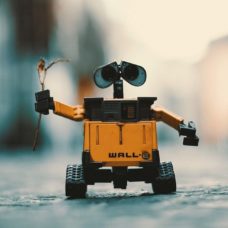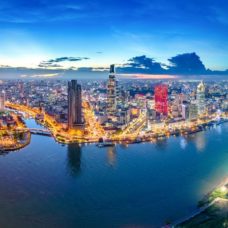How many friends do you have who often mention their “side hustles?”
Uber or Lyft. Instacart. Freelance video editing or content production. Even makeup artists. All of these careers can now fall under the “gig” economy.
Does the current trend toward gigs spell disaster for our economic future?
The Gig Economy Won't Fly in Industry 4.0Click To Tweet
Multiple Jobs: An Impediment or Expeditor to Future Development?
The chief economist at Moody’s Analytics Mark Zandi told USA Today that many people having multiple jobs is a good thing: “It’s symptomatic of a tight labor market and the fact that you have so many job openings. It means that people who want to work are able to find jobs.” But, is that the truth?
There has been much contention over raising minimum wage to a livable wage surrounding the very fact that most people work more than one job. It’s also no secret that millennials work those side hustles. However, many contract jobs don’t take out taxes. They don’t provide work-related materials like cell phones, laptops, cars, or necessary software.
On top of that, these jobs ask you to incur damage to your own property. Google has an option where employers can remotely erase a device to protect company assets if you provide them access.
Imagine having this happen to your private phone–that you paid for–all to protect company assets and you’re just working this as a side gig. Side gig or main job, the cost can begin to outweigh the benefits.
Of course, the damages extend to the users of these gigs, too.
Furthermore, what are the hidden mental and emotional costs of the gig economy? And where does employer accountability come into play for contractor losses?
The Pros & Cons

Side hustles and gigs offer a few benefits for those willing to partake:
- Variable tasks
- Task switching challenges
- Variety of disciplines in different industries (being an accountant AND bartender)
- Bonus income
- Pursuing a hobby for money (such as a personal trainer)
- Building a higher list of marketable skills
- Time management skill building
- Freedom to control your own schedule
- Being your own boss (in a way)
Studies also suggest that, despite concerns of self-discipline availability, task switching may be useful. The key is realizing that small tasks equal a larger objective. Self-control allows people small energy and ego boosts in pursuance of that larger goal.
Working multiple jobs taps into this naturally occurring incentive system. But it also comes with a few detriments:
- Less free time for friendships or personal errands like doctor appointments
- Less flexibility or spontaneity
- Higher varieties of stress types and higher stress levels
- Greater risk of performance peril
- Potential conflicts of interest
- Less work environment structure
- Potential cost of materials
- Health detriments due to stress, job-related injury, etc.
- Lower energy levels for self-care and everyday tasks like cleaning
Economically speaking, this means that quality of life should be higher, but might not necessarily be if someone is working multiple jobs.
How Does Multitasking Figure In?

Multitasking is an aspect of working multiple jobs. As many people already know, multitasking involves diverting attention across multiple small tasks at one time.
No matter what combination of tasks, they all take mental bandwidth.
Listening to music, studying, and occasionally checking your phone for texts, Snapchats, or Facebook notifications.
Watching Master Chef while working out. Driving and conducting business meetings via Skype or WhatsApp. Even just driving while listening to music takes enormous focus.
Why else do you think we turn down the music to see road signs better?

Regardless of our personal capacity for it, studies that say we can’t actually multitask. And yet, we all do it. Involuntary tasks like breathing and blinking don’t count, but many of us are Tab Fiends™ as pictured above. Most people multitask in some way albeit not very well. Certain studies suggest that this leads to a more productive brain. As always, there are plenty of those who disagree.
Working side jobs requires a great deal of multitasking. Given the extent of the debate over benefit vs. detriment of multitasking, one has to wonder if either is good for us. However, the biggest question isn’t whether or not multitasking and working more than one job are good for US.
What does it mean for the future of our economy?
A Scattered Future or Many Roads to Industry 4.0?
Automation means a total restructuring of our current economic system. Whether here in the U.S., abroad, or the global economy, one person working multiple jobs has no place in Industry 4.0.
Machines will continue to replace previously human jobs and yet, currently, so many people depend on two or more sources of income.
Beyond that, autonomous cars will eliminate the need for multitasking risks like texting and driving. If we can’t transition smoothly from this system to achieve our larger goal, our multi-focus perspective might lead to distracted dystopia.
Of course, if Elon can get us to Mars by 2020, we might all figure out how to focus on a grand, unifying technological goal.



















Comments (0)
Most Recent